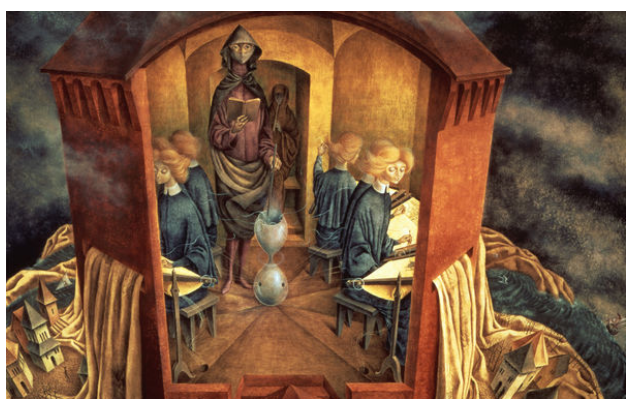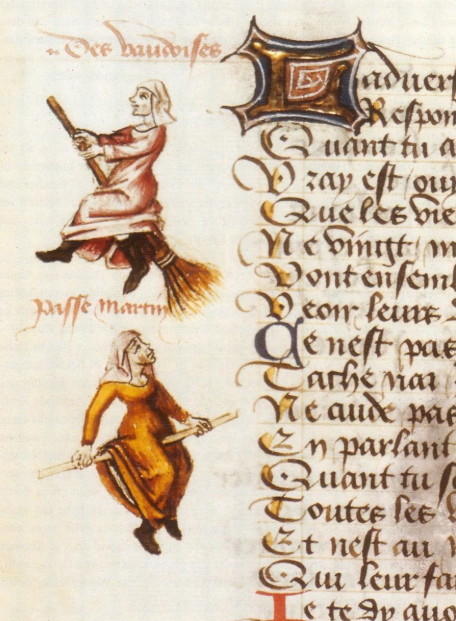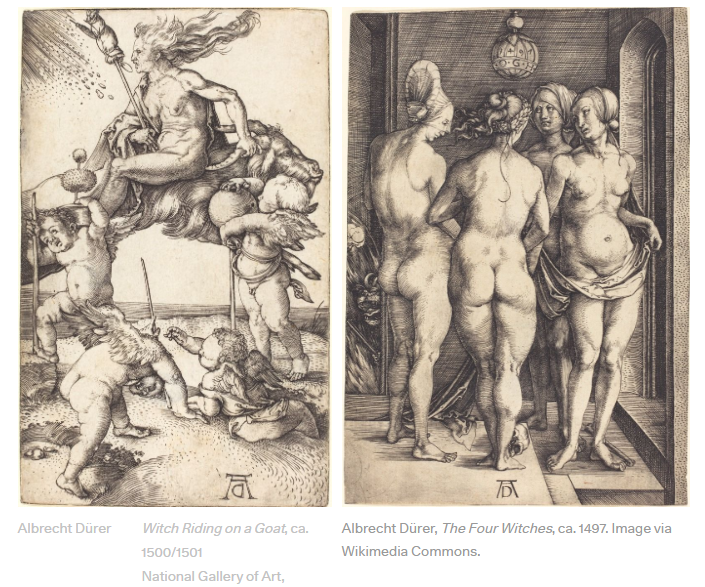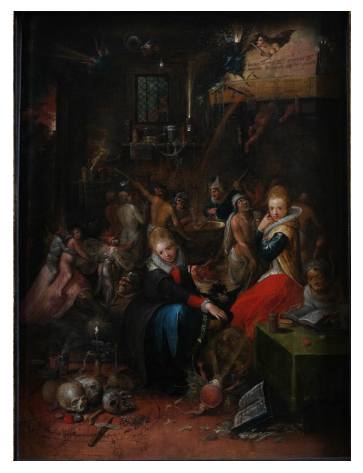Welcome to DU!
The truly grassroots left-of-center political community where regular people, not algorithms, drive the discussions and set the standards.
Join the community:
Create a free account
Support DU (and get rid of ads!):
Become a Star Member
Latest Breaking News
Editorials & Other Articles
General Discussion
The DU Lounge
All Forums
Issue Forums
Culture Forums
Alliance Forums
Region Forums
Support Forums
Help & Search
The DU Lounge
Related: Culture Forums, Support ForumsWhy Artists Have Been Enchanted by Witchcraft for Centuries


https://www.artsy.net/article/alina-cohen-artists-enchanted-witchcraft-centuries

Illumination depicting the two witches on a broomstick and a stick, in Martin Le Franc's Le Champion des dames ("Ladies' Champion" ), 1451.
The history of witchcraft in Western art is a tale with a dramatic plot twist. Throughout the 1400s, witches began appearing in European illustrations and woodcuts as demonic creatures with deviant sexual habits: Broomsticks were stand-ins for phalluses, and nude women rode backwards on goats. Throughout the next 400 years, around 80,000 Europeans—80 percent of them women—were killed for alleged witchcraft. Their “crimes” ranged from causing male impotence to damaging property and worshipping Satan. In the 1800s, occult spirituality was suddenly back in vogue. Women began reclaiming sorcery for themselves, in both their lives and their art.
Fast forward to 2019: Witches are alive and well, from Bucharest to Los Angeles. They’re casting spells, making enchanting artwork, and cursing world leaders. It’s certainly an improvement from the days of witch burnings, but gender inequality is still evident in contemporary spiritual and aesthetic practices. Ideally, women would have enough power and influence to make magical activity redundant. By tracing the history of witchcraft in art, we reveal just how far we’ve come—and how far we still have to go.
Early-modern wicked witches of the West

The first known Western artwork depicting witches on broomsticks appears in an illustrated manuscript of a poem, “Le Champion des Dames” (1451), by French writer Martin Le Franc. To the left of Le Franc’s calligraphic text fly two women in long dresses—one pumpkin-hued, the other the color of a carnation. Light cloths cover their hair, and they look up towards the sky. They’re labeled as “Waldensians,” hailing from an ascetic Christian sect. French lore derided the group as heretical, imagining that its women flew through the sky on twig brooms.
“Some of the most powerful images of the diabolical nature of witchcraft produced in the fifteenth century depicted witches as part of a group, and were shaped by contemporary notions of heresy and apostasy,” wrote Charles Zika in The Appearance of Witchcraft (2007). Heretics, of course, were more frightening in large numbers, as they created a more significant threat to the status quo. If one witch was scary, a flying coven was downright terrifying.


snip
2 replies
 = new reply since forum marked as read
Highlight:
NoneDon't highlight anything
5 newestHighlight 5 most recent replies
= new reply since forum marked as read
Highlight:
NoneDon't highlight anything
5 newestHighlight 5 most recent replies
Why Artists Have Been Enchanted by Witchcraft for Centuries (Original Post)
Celerity
Oct 2019
OP
IcyPeas
(24,803 posts)1. another one from Remedios Varo - Vampiros Vegetarianos
Her surrealist art is very interesting.
One of the most thrilling works we handled this year was the deliciously macabre painting by the surrealist artist Remedios Varo. Painted at the height of her career in 1962, and just one year before her untimely death, this exceptional work is a visual tour-de force filled with whimsy and melancholy.
In Vampiros Vegetarianos three mutant, vegetarian vampires appear mesmerised and huddled around a small bistro table, each feverishly feasting from long straws on a succulent meal of blood red fruits and vegetables. Two hybrid creatures, half rooster and half cat — reminiscent of those in the paintings of her friend Leonora Carrington — look on, tethered to their masters and eager to partake in this banquet. A fiery glow emanates from the vampires as they consume their meal and appear to regain a sense of vitality with each sip.

sl8
(16,977 posts)2. Well, enchantment is the witch's stock-in-trade. n/t